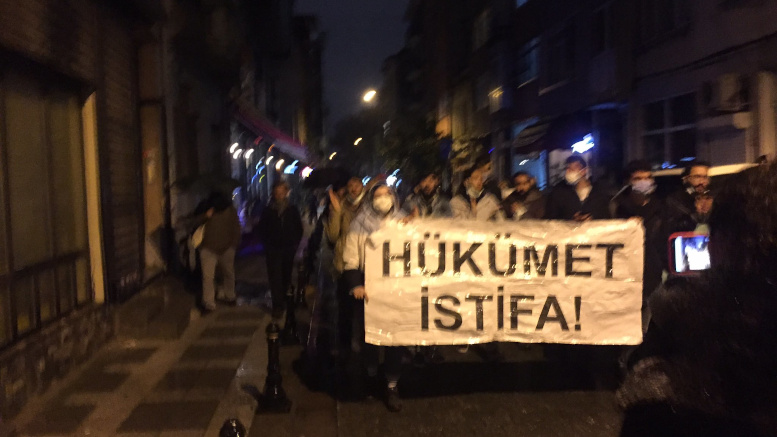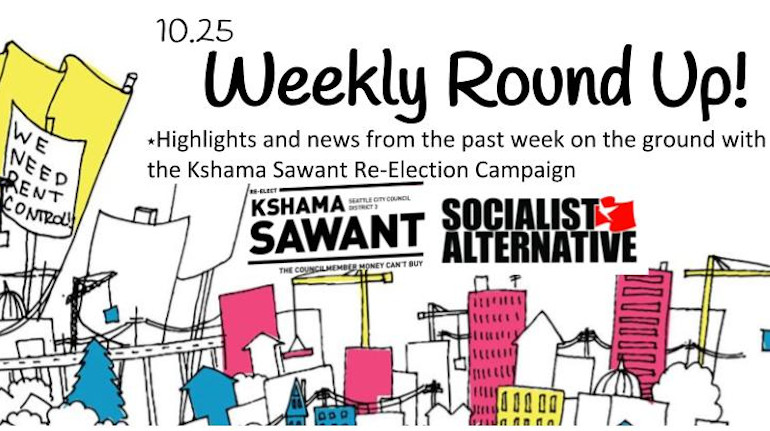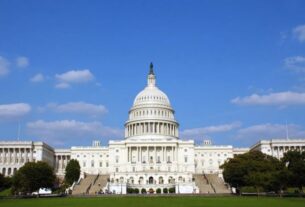Serge Jordan is a member of International Socialist Alternative.
The social foundations of the regime of Recep Tayyip Erdoğan and his Justice and Development Party (AKP) in Turkey are starting to crack. The elements of economic, social and political crisis that had been building up before Covid-19 have been heightened by the pandemic, bringing the country to the verge of upheavals whose repercussions could resonate way beyond its borders.
Collapse of the Lira
The worsening currency crisis gripping the economy is symptomatic of a much deeper crisis facing Turkish capitalism, which the regime’s monetary policies are not only increasingly impotent to address, but are aggravating every step of the way. Turkey’s currency, the Lira, is in freefall, having lost about 45% of its value since the beginning of the year — its worst year on record — with most losses concentrated over the last three months. Since the Turkish central bank has depleted its foreign reserves to keep the Lira afloat over the years — having spent more than $165 billion in less than two years to that effect — it has hardly any such reserves left to do the trick.
While internationally, many central banks, grappling with rising inflationary trends, are heading towards raising their interest rates, Erdoğan is obstinately pushing in the opposite direction, regularly slashing interest rates further and dropping the axe on any voice questioning this policy within the ruling establishment. A wide array of central bank policymakers have already been sacked this year, and the country’s Finance Minister was removed from his post last week to be replaced by a die-hard loyalist.
Erdoğan’s expansionary monetary policies are based on his calculation that cheap borrowing costs facilitates investment and helps maintain economic growth, while arguably, the disadvantages of a weaker Lira are outstripped by the benefits of cheaper labour costs and the resulting boosts in exports. This policy of credit-driven growth has been used to an extent in the past — most especially to enrich the big export and real estate tycoons close to the AKP regime. Credit injection was also abundantly resorted to in order to weather the storm of the Covid-19 crisis. Turkey’s overall debt volume has thus increased by over 40% since the end of 2019, according to official statistics. This figure alone shows that the regime’s policies have stuffed the very fabric of the Turkish economy with serious contradictions which, in the midst of rising global prices, are now starting to unravel.
While a section of big business is profiting from the weak Lira, many Turkish companies also depend on imported raw materials and goods which they have to purchase in foreign currencies. A much weaker exchange rate leads to higher production costs, affecting their profit margins — which they try to compensate on the back of their customers through higher prices. Medicines in the country are now running low, because they depend on imports that have become too expensive to purchase to be profitable for pharmaceutical manufacturers.
Turkey — a global risk
Turkey is also a country without significant energy resources; it has to import all of its oil and gas supply from abroad — and energy prices on the global markets have gone up dramatically in the recent period.
Furthermore, a significant portion of Turkish companies and banks’ debts are denominated in foreign currencies — mainly US dollars and euros. An ever weaker Lira means these debts are made much more difficult to service. According to the IMF, there are now a total of $168 billion in external debts from Turkey coming due within the next 12 months — two thirds of which come from the private sector. The increased risk of defaults on these corporate loans could send shockwaves through other economies. For example, European banks – particularly Spain, France and Italy — are heavily exposed to Turkish debt.
Working people expected to pay the bill
With the crash of the Lira, inflation has gone through the roof. It is officially at around 21% but is practically much higher. According to a study by the independent Inflation Research Group, real annual inflation in September was as high as 44.7%. Consumer confidence has fallen last month to the lowest recorded level ever since it has been tracked, as everything, from staple foods to housing prices, has become far more expensive. This is in a situation when many poor and working-class people have already used consumer loans to meet their daily livelihood needs.
Unemployment is also rising sharply, especially since the ban on dismissals introduced during the early stages of the pandemic was lifted by the government in July. The AKP regime’s utter callousness for people’s lives and livelihoods all through the Covid-19 pandemic was on open display when in early November, Erdoğan publicly declared that “From the early days of the pandemic, we built a system that does not allow any disruption in industrial production.”
At the same time, feeling the heat of people’s growing discontent with the economic situation, Erdoğan has typically come out with conspiracy theories to deflect the blame away from his regime, suggesting a concerted but undefined foreign plot is underway to bring Turkey to its knees. His interest rate cuts are justified to the Turkish people as a necessary “economic liberation war” against what he calls the “interest rate lobby.”
Truth be told, foreign speculators who had flooded the Turkish financial markets with hot money in order to profit from high-interest rates are unsurprisingly pulling their money out in large numbers. The prospect of monetary tightening by the US Federal Reserve and other central banks in the advanced economies, as well as the added uncertainties around the new Omicron variant, are only adding to the chances for larger capital outflows from the so-called “emerging markets” — with Turkey in the firing line.
Yet despite his populist rhetoric, Erdoğan is not doing anything to address this, and stands firmly in the camp of the rich and the crisis profiteers. Rather than, for example, implementing capital controls and seizing the wealth of the 157 companies on the Istanbul Stock Exchange who have increased their profits by 32% in 2020, his policies are only transferring the bill onto the shoulders of the country’s working and middle class people, through a massive compression of their real wages and living standards. This is only likely to intensify as the currency crisis starts to infect the real economy.
Rising class struggle
But perhaps the most significant change affecting Turkey at the moment lies in the mood of the masses. The idea that the AKP regime could guide the country towards ever-improving economic prosperity has been exposed for the myth that it always was, and anger is mounting across the board. Public statements from AKP officials lecturing people to go vegetarian and to buy less food have only outraged people further.
The country is facing a rising tide of protests and strikes against the worsening economic conditions and the price hikes, especially in the main cities, some of them demanding Erdoğan himself step down. Scores of people have been detained for joining unauthorised street protests in recent weeks, and hundreds of social media accounts encouraging people to protest against the government or demanding the President resign have been targeted by the state.
September saw the emergence of “Barinamyoruz Haraket” (“We Can’t Shelter”), a protest movement from university students staging sit-ins and night sleepovers in public parks in dozens of cities against accommodation costs that have skyrocketed since the pandemic. They demanded measures such as caps on rents, the building of more affordable housing, and more subsidies and scholarships for students.
Workers’ strikes have rocked a number of sectors, including the postal services, the transports, the petrochemicals, the municipalities, the healthcare, or the universities. Despite vicious trade union-busting efforts by the bosses and attempts to nip workers’ militancy in the bud all through the pandemic, both strikes and unionisation are on the rise, attesting to the growing willingness of workers to fight back.
On November 18, thousands of workers demonstrated in the İzmir province with slogans such as “We cannot make ends meet,” “Budget for the worker, not for the palace,” “Government; down with your price increases,” etc. The DISK union confederation raised on that occasion the call for a one-day general strike for an increase in the minimum wage. Such a call, if it was to be actively campaigned for and taken up by other unions, would undoubtedly be received with a warm response from large sections of the working class in Turkey.
All these examples show that far from being merely a currency meltdown, the current crisis has the potential to snowball into something much bigger, akin to a regime crisis. As the economic situation deteriorates, the regime’s popularity, still relatively high, is eroding fast. Both Erdoğan and his party’s credit are plummeting in the opinion polls, particularly among young people. This even concerns areas that used to be electoral strongholds of the AKP. In a survey taken in October by MetroPoll, a leading Turkish polling firm, more than 80% of Turkish people said the government was handling the economy badly.
With millions in Turkey going hungry and unable to pay their electricity bills, and people’s anger beginning to show up in the streets, all ingredients are piling up for mass social and political convulsions. The brutal lid that the regime has imposed for years on basic democratic forms of expression makes the situation all the more explosive. The big business mouthpiece Wall Street Journal recently warned that “After years in which he has survived a military coup and steered Turkey through wars and instability in the wider Middle East, Mr. Erdogan now risks a revolt among his political base.”
Political opposition
The struggles that are mounting in various sectors and areas should coalesce into a mass mobilisation of all workers, poor and oppressed across Turkey against Erdoğan’s autocratic and pro-capitalist rule.
While of course, all avenues should be used to reject the current regime, it should be clear that the insistent calls for early elections by the “Nation Alliance,” the bourgeois opposition bloc, are mainly motivated by their fear that people’s search for a way out expresses itself in the streets rather than through the safe channels of electoral politics. This is why main opposition Republican People’s Party (CHP) leader Kemal Kılıçdaroğlu advocates people to “be patient. You might be hungry. Your electricity might get cut off. You might get arrested, thrown into prison and even tortured and strip-searched. But be patient. There is not long left.”
This tactic of patiently waiting for the next presidential and parliamentary elections (officially scheduled for 2023) is cut off from the daily suffering reality of millions.
In part this explains the turn towards populism by Kılıçdaroğlu in the past period. His visit to the Turkish Statistical Agency to complain about the inflation figures is an attempt to turn popular anger against the messenger. In the same way, he is attempting to tap into the huge anger against violence against women. This was demonstrated by large protests across Turkey on November 25. But the six points of his plan beginning with the recognition of the Istanbul Convention will be no more than empty promises as long as Turkey remains a capitalist society.
The approach of the CHP, focused entirely on voting out the AKP in the next elections, presupposes that Erdoğan and his party would leave the scene quietly if they were to lose the vote, and won’t do everything within their reach to cling onto power. Expecting this from a regime that has not hesitated to use war, terror, corruption, repression and the re-run of elections whenever it suited its short-term interests is naive at best. Besides, pursuing its instincts for political survival, Erdoğan’s regime is likely to pursue more erratic policies to try and pull attention away from the economic crisis, stir divisions within the working class and poor, and fuel nationalism — whether through the whipping up of anti-immigrant propaganda or through new military adventures against the Kurdish forces in northern Syria.
In truth, a party like the CHP, itself soaked in nationalism and having made clear its own intention to send all refugees in Turkey back to their homeland in two years if it comes to power, has no alternative to the AKP on these issues than it has on the economic front. The main purpose of the pro-big business “Nation Alliance” is to solve the crisis of political representation facing the Turkish capitalist class, and to derail the growing popular anger at the current regime into an amended and polished version of the same exploitative and oppressive system.
Militant working-class force needed
That is why before, during and after the elections, the building of a militant political force independent from the two main pro-capitalist blocs, and championing the interests and struggles of the working class and of all oppressed sections of society, will be so critical.
The suggestions of a rapprochement between the CHP and the pro-Kurdish left party HDP that Kılıçdaroğlu clearly wants will be a step away from this. While the parties will maintain independent lists in the Parliamentary elections, it seems the HDP is prepared to support a joint candidate, presumably the pro-capitalist Kılıçdaroğlu, for President.
It is one thing to “join together at public squares to overthrow Erdoğan” as proposed by former HDP Chair Selahattin Demirtaş. But it is completely wrong in the name of unity against dictatorship to sacrifice the political and organisational independence of the working class and to drop any anti-capitalist program.
If it steers clear from such attempts to dilute its left-wing platform into a broad electoral front with pro-capitalist parties, the HDP, along with other left forces and the militant parts of the trade union movement, still has an important role to play in bringing about a genuinely independent working-class party capable of providing socialist answers to the current crisis facing Turkish and global capitalism.




